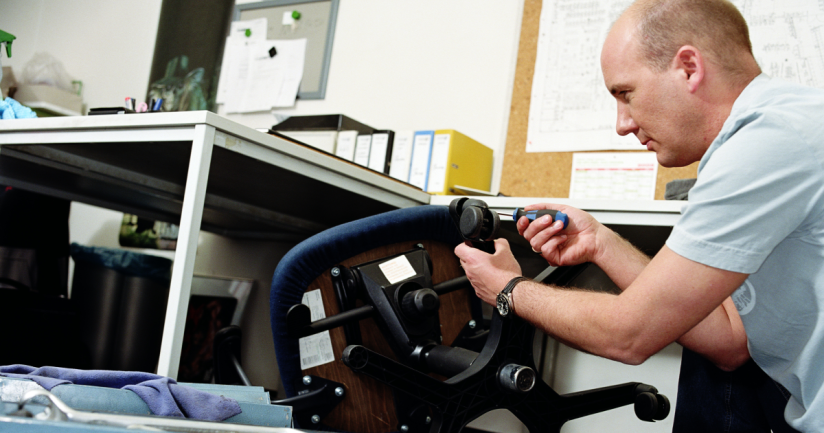Recycling and reuse: Societe Generale calls time on waste
Discover how the Societe Generale Real Estate Division is contributing, around the world, to the circular economy through recycling and reuse

The Societe Generale Real Estate Division is involved in the various aspects of CSR in order to contribute to the Group’s sustainability challenges. As well as reducing carbon emissions associated with the energy consumed in our buildings, actions are also deployed to reduce waste, boost the circular economy, ensure we use water sensibly, etc.
Giving a new lease of life
The circular economy is a production and consumption model that consists in extending products’ life cycles and producing as little waste as possible. In practice, it involves sharing, reusing, repairing, renovating and recycling existing products and materials for as long as possible.
The Societe Generale Real Estate Division is contributing to waste reduction, but also to the development of the circular economy within the Bank. Among other things, this involves the recycling of furniture, the reuse of materials such as carpeting (3 tons in 2023), movable partitions (254 linear metres in 2023) or construction waste.
In Luxembourg, within the framework of the construction of the Arsenal building, Societe Generale’s new headquarters in the Grand Duchy, they opted for the recycling of furniture. 80% of the existing furniture was reintegrated in the buildings, providing it with a new lease of life. This eco-responsible approach led to financial costs being cut by 50% compared to purchasing new furniture. The Icône and Arsenal buildings were also furnished by giving a new lease of life to furniture from Paris central buildings (from inventories awaiting another shot at life following the move to flex working or from surplus inventories after restocking).
Moreover, since the Covid crisis, a partnership with the French e-flex.lemajordome website enables Societe Generale and its subsidiaries to sell furniture that will no longer be used in its premises to the Group’s members of staff at preferential rates. Since this approach was first implemented, 1,400 articles, or 26 tons of furniture, have been sold on. At the same time, the Group also donates furniture that it no longer needs to charity associations and public institutions (hospitals, schools, police stations, fire stations, etc.). This represents some 4,000 items since January 2024.
Repairing and transforming
In the Dunes (Fontenay-sous-Bois), Basalte (La Défense) and Anjou (Paris), the Group calls on the Atelier Emmaüs, a French association, to install furniture made from panels left over from the manufacturing of kitchen furniture. Not just a commitment to the social and solidarity-based economy, this approach has generated estimated CO2 savings of 1.2 ton. Since November 2023, Societe Generale has also been experimenting with the refurbishing of armchairs with a temporary refurbishment workshop set up in the Basalte building in La Défense. Almost 2,500 armchairs have thus been renovated onsite by producing certain components using 3D printing. The cost of refurbishing an armchair is barely a quarter of the cost of new furniture and extends the object’s lifespan.
Lastly, on the 6.3 campus in Bucharest, the local teams wanted to prioritise recyclable and recycled products. The logistical elements of the regional economy and the reuse of existing objects have helped avoid more than 150 tons of CO2 emissions.
The circular economy, a pillar of the ecological transition
Societe Generale’s CSR strategy is based on both preserving the environment and having a positive local impact. The circular economy – fundamental for a sustainable economy that respects our planet’s limitations – has thus naturally been incorporated within the ecological transition pillar. One of the leading contributors, Societe Generale works every day to limit the consumption and wastage of resources in all its Parisian buildings, but also helps local teams around the world move towards virtuous solutions.